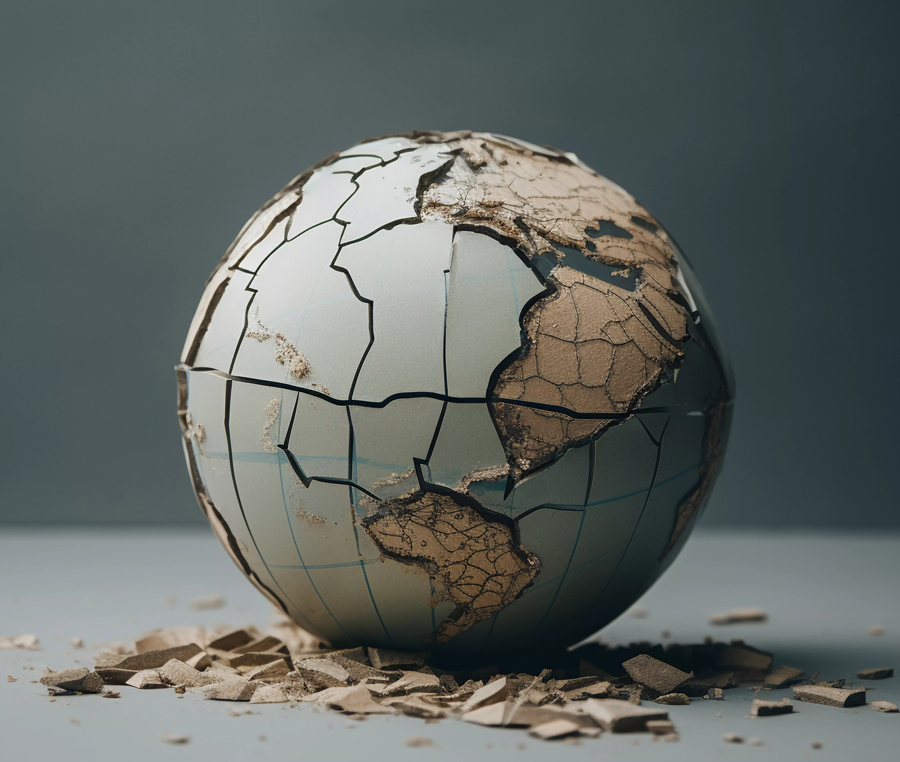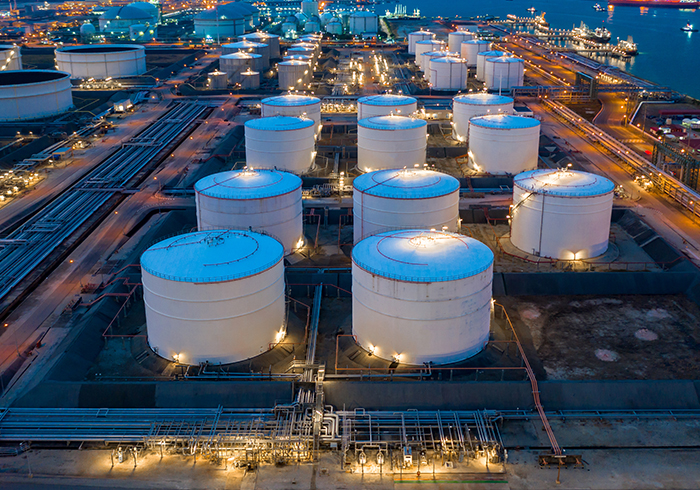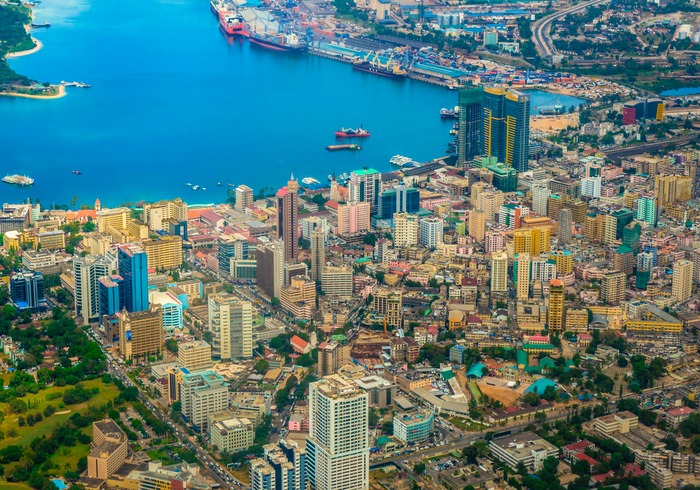The next decade is set to be turbulent, shaped by concerns over war, climate change and geoeconomic competition, with profound impacts on global trade, a World Economic Forum (WEF) report predicts.
The Global Risks Report 2025, produced by the WEF in partnership with Marsh McLennan and Zurich Intelligence Group, compiles insights from 900 leaders across academia, business, government, international organisations and civil society between September and October 2024.
Respondents were asked questions about the evolving risk landscape in coming years, with a focus on the outlooks for one, two and 10 years in the future.
Almost 90% of leaders surveyed expect the next two years to hold further instability and upheaval, with a moderate to high risk of global catastrophe. This is slightly higher than last year, when the figure stood at 84%, and reflects what the report calls “one of the most divided times since the Cold War”.
“We have to recognise that fragmentation is not just a theoretical concern,” chief commercial officer in Europe for Marsh McLennan, Carolina Klint, said at a press conference launching the report last week.
“This is a reality that businesses must confront today. The rise of protectionism and increasing trade disputes have led to a significant increase in tariffs and trade barriers worldwide; this has become even more evident as many nations push to secure critical natural resources to fuel technology innovation and their energy transition.”
War, extreme weather and geoeconomic confrontation – including tariffs and sanctions – were identified as the top three risks for 2025. All three factors have the potential to significantly disrupt supply chains, as demonstrated in recent years with events like the Houthi raids on Red Sea shipping, US tariffs on China and the huge costs to insurers driven by natural disasters.
State-based armed conflict – war – was the highest-ranked risk, which the report attributes to the “depth of respondents’ fears” about the ongoing Russian invasion of Ukraine and conflict in the Middle East, alongside the potential for Chinese action in Taiwan. These geopolitical events were also a key theme mentioned by political risk players speaking to GTR late last year, who said these conflicts may fuel higher commodity prices and increasing premiums for traders around the world.
To mitigate risks from conflicts, the WEF’s report suggests businesses diversify supply chains, both to ensure they are not totally dependent on a vulnerable supplier and so that they do not harm their reputations by trading with controversial counterparts during a war.
Ranking third in risk perception for 2025, a major trade-related concern is geoeconomic competition between countries, which the report says is leading to “supercharged economic tensions”.
Continued use of tariffs to protect domestic industries around the world may accelerate the decoupling of countries, particularly those aligned with either the US or China. This process is already underway, the report notes, referencing Global Trade Alert’s data that shows trade divisions have pushed the cost of doing business to a 10-year high.
The new Trump administration’s threats against China, Mexico and Canada are a prominent fear. The report argues that even if they are intended as negotiating tools, they “undoubtedly are a signal to the rest of the world that deepening protectionism is on the agenda”.
If US trading partners retaliate, the resulting trade war could spill out to the rest of the world, affecting “even the many countries that are not aligned with either West or East”.
The worst-case scenario, the report says, is the widespread imposition of across-the-board tariffs applied not only in retaliation, but against all trading partners. This would trigger “a substantial contraction in world trade” with increased US tariffs on China acting as a potential catalyst.
If Chinese exports flood the EU in response, European nations may impose similar measures, setting off a domino effect in Latin America and beyond. This may lead to a “pattern of rolling, progressive protectionism spreading worldwide, at different speeds in different sectors, going well beyond bilateral tit-for-tat tariffs”, the report says.
Beyond tariffs, the report warns about the possibility of increased government intervention in industrial policy, including export subsidies and trade restrictions based on national security concerns.
These concerns were echoed – and perhaps intensified – by president of the European Commission Ursula von der Leyden in her speech at the World Economic Forum yesterday: “The cooperative world order we imagined 25 years ago has not turned into reality. Instead, we have entered a new era of harsh geostrategic competition. […] In the last 25 years, Europe has relied on the rising tide of global trade to drive its growth. It has relied on cheap energy from Russia. And Europe has too often outsourced its own security. But those days are gone.”
During the speech, von der Leyden announced a simplification of the bloc’s due diligence and sustainable finance rules, as well as plans to establish a unified business legislation framework across all 27 EU member states – the so-called “28th regime”.
Climate risks loom
The report also asked respondents to rank risks over a 10-year span. The results reveal what the report describes as “a markedly deteriorating global risks landscape”, as all 33 risks surveyed are perceived as more serious in the long term than the next two years.
Climate-related issues dominate, with business leaders identifying extreme weather events, biodiversity loss and ecosystem collapse, critical change to Earth systems and natural resource shortages as their top concerns over the next decade. Though extreme weather ranked second in the threat outlook for 2025, less than 5% of respondents chose other climate risks as top concerns for this year, suggesting they are mostly a longer-term fear.
According to the report, last year the planet crossed six of the nine “planetary boundaries” – the environmental limits within which humanity can safely operate – driven by unsustainable patterns of production and consumption.
Attempts to reduce emissions in the trade finance sector have delivered mixed results in recent years. A major blow was dealt in December with the failure of the OECD Arrangement to come to a deal banning fossil fuel support by export credit agencies. November’s Cop29 summit also left key questions unanswered, including the role of carbon taxes in international trade.








